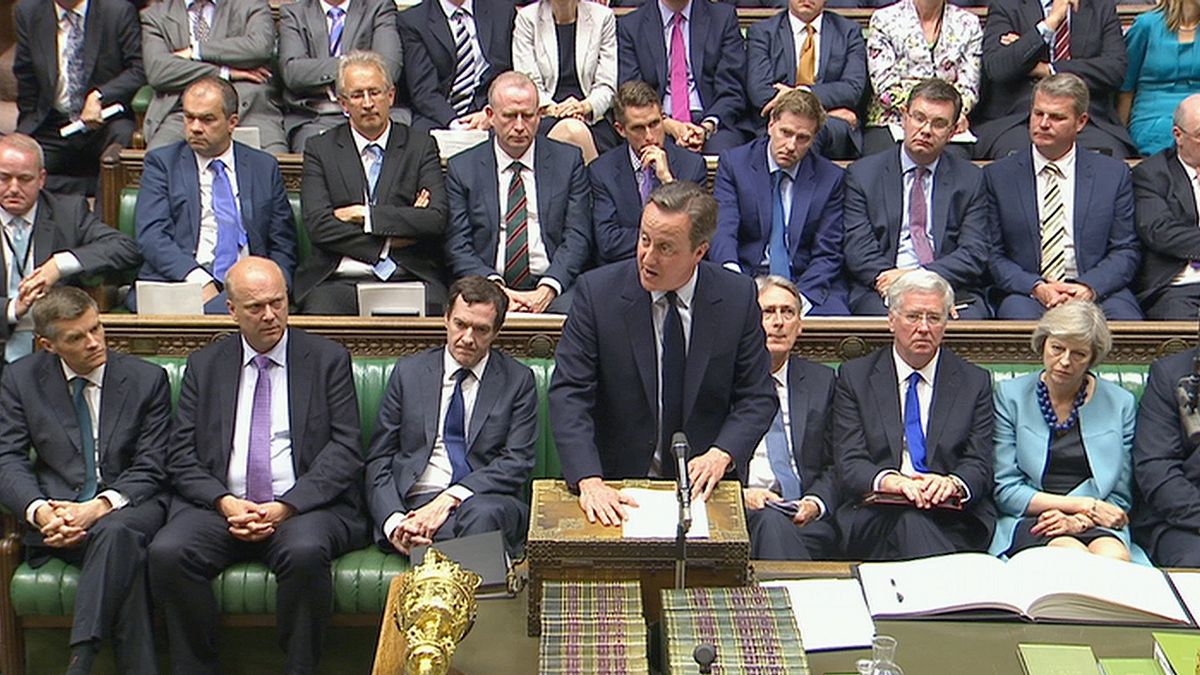British Prime Minister David Cameron has said Article 50 of the Lisbon Treaty, officially beginning the process for the UK’s departure from the EU, will not be triggered “at this…
British Prime Minister David Cameron has said Article 50 of the Lisbon Treaty, officially beginning the process for the UK’s departure from the EU, will not be triggered “at this stage.”
He said he had spoken to EU leaders such as German Chancellor Angela Merkel and French President François Hollande about needing time to prepare the next step.
The timing for Brexit was a decision for Britain to make alone, the prime minister insisted.
Before triggering Article 50, further discussions on the UK’s future relationship with the EU are needed, Cameron said. But this seems to contradict Merkel’s stance.
Speaking on Monday (June 27) she said she understands the UK needs time to work out the next step.
However, the German government has said there will be no informal talks between the UK and the EU before the nation officially announces its intention to leave.
‘It is going to be difficult’
While Cameron said he disagreed with the outcome of Thursday’s (June 23) historic vote, he said his cabinet had agreed that the decision must be accepted, effectively putting the brakes on any discussion over a possible second referendum.
“It is going to be difficult,” he said of the UK’s exit from the bloc, with “challenging new negotiations” ahead. However, he warned that Britain must not turn its back on Europe and the rest of the world.
“It was not the result I wanted, nor the outcome I believe was best for the country I love but there can be no doubt about the result.
“Of course, I don’t take back what I said about the risks. It is going to be difficult. We’ve already seen that there are going to be adjustments within our economy, complex constitutional issues and challenging new negotiation to undertake with Europe.
“But, I am clear and the cabinet agreed this morning, that the decision must be accepted and the process of implementing the decision in the best possible way must now begin,” Cameron told parliament.
He confirmed that all negotiations for Brexit would be carried out by the new prime minister, who is expected to be in place by September 2.
A new EU unit is to be created in Whitehall consisting of members of the cabinet, treasury, foreign office and business departments.
The unit will report to the whole cabinet and objectively explore what the EU’s future relationship with the EU will be, said Cameron. Oversees and regional centres of power are also to be consulted.
Leader of the opposition Jeremy Corbyn agreed with much of what Cameron had to say, but insisted whoever takes charge must ensure the security of pledged EU funding to the UK.
Transcript: David Cameron's statement on the outcome of the EU referendum https://t.co/glmxbUHHbJpic.twitter.com/wov3UOPoj3
— PoliticsHome (@politicshome) June 27, 2016
‘No immediate changes in circumstance’
In the first session of the House of Commons since the in-out referendum, Cameron sought to reassure UK nationals and citizens of the EU living in Britain that there will be no immediate changes in circumstances, travel and trade.
Following his speech to parliament, the prime minister said he would also do everything possible to persuade the French authorities to keep UK border controls within France.
Economic fears
He also tried to alleviate any economy-related fears the Commons and the British people had raised.
“Britain is ready to confront what the future holds from a position of strength,” he said, stating that the UK has one of strongest, major advanced economies in the world.
UK institutions have enough capital and reserves to cope with worse situations, he added.
Cameron will attend a European Council meeting as planned on Tuesday (June 28).
